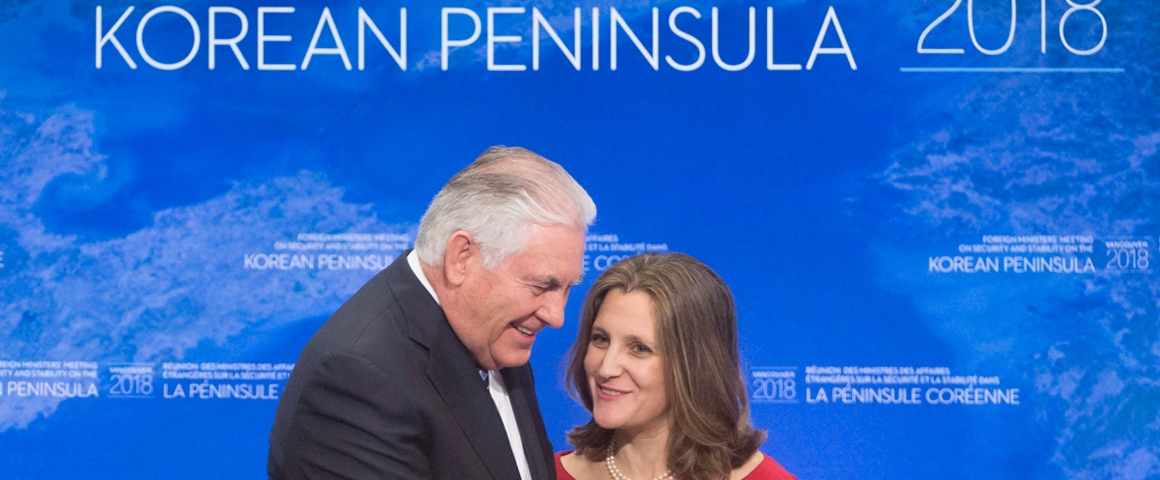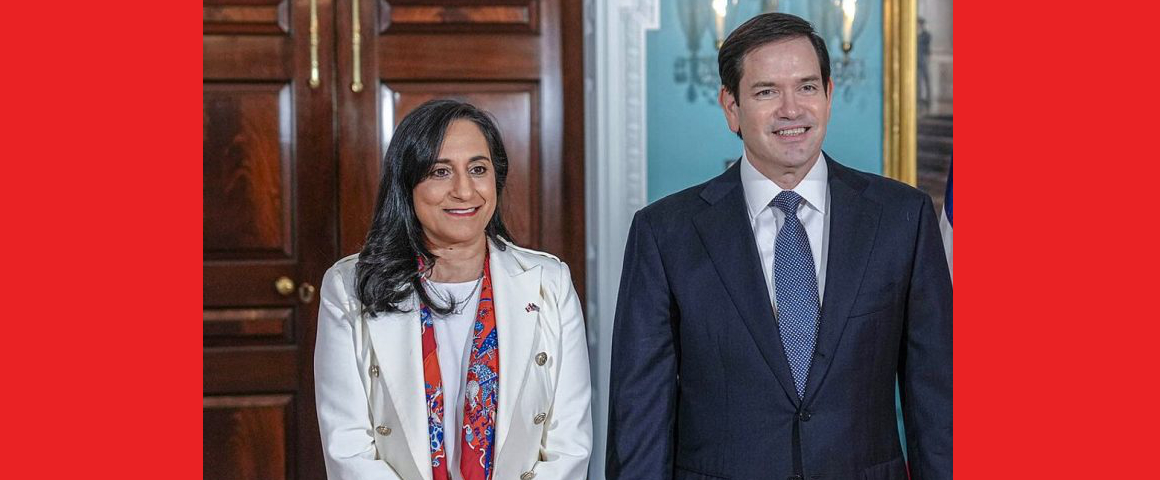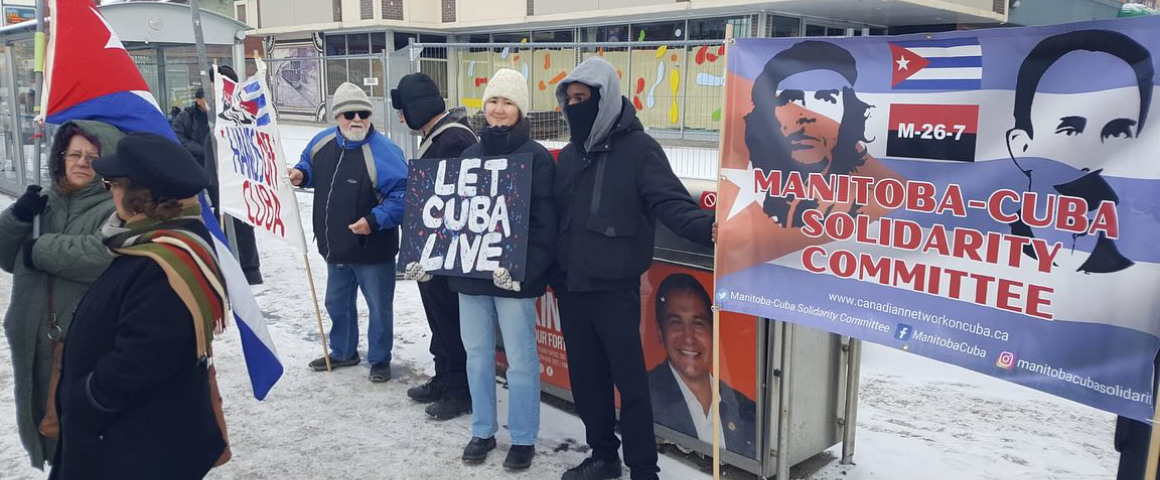If the “Vancouver Group” summit hadn’t ended with more of the same imperialist bullying that led to the Korean Peninsula crisis, the exercise could have been written off as just another waste of taxpayer dollars. The event’s concluding message from US Secretary of State Rex Tillerson and Canada’s Foreign Minister Chrystia Freeland was a call for stiffer sanctions and more pressures against the Democratic People’s Republic of Korea (DPRK). This strategy was considered a “reasonable alternative” to Donald Trump’s threats to murder the entire population of the DPRK. But weeks in advance, it was already clear that the two Koreas are seeking diplomatic and peaceful solutions to the tensions dividing the peninsula. North Korean athletes will compete at the Winter Olympics in PyeongChang, and the governments of North and South are cooperating to increase economic and family contacts. These positive developments have been ignored or dismissed by both the US and Canadian governments.
Any genuine search for solutions would necessarily bring other major regional powers to the table, particularly Russia and China, which were excluded from Vancouver while reliable US allies like Greece, Denmark and Colombia were invited. The U.S. administration even described the summit as the start of a new ‘coalition of the willing’, recycling the Bush administration’s ominous term for the countries which backed the US illegal invasion of Iraq in 2003. No wonder that Russia called the Vancouver meeting “destructive” and a “relapse of the Cold War mentality.”
Fortunately, women’s peace movements from sixteen countries also came to Vancouver. They urged sensible proposals, to bring all parties to the table, withdraw the massive US military presence from the region, and reach a deal to finally end the Korean War. This is not “pie in the sky” stuff – it’s the only way to defuse a dangerous confrontation.




